Related Research Articles
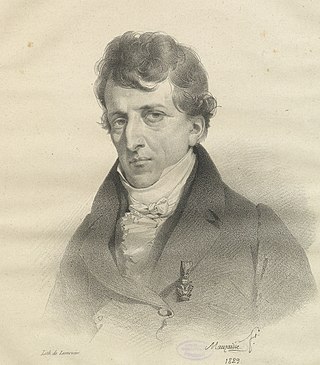
Giovanni Aldini was an Italian physician and physicist born in Bologna. He was a brother of the statesman Count Antonio Aldini (1756–1826). He graduated in physics at University of Bologna in 1782.

Neurosurgery or neurological surgery, known in common parlance as brain surgery, is the medical specialty concerned with the surgical treatment of disorders which affect any portion of the nervous system including the brain, spinal cord and peripheral nervous system.
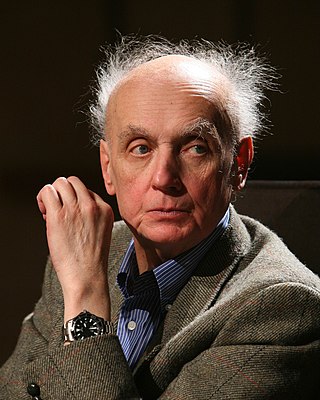
Wojciech Kilar was a Polish classical and film music composer. One of his greatest successes came with his score to Francis Ford Coppola's Bram Stoker's Dracula in 1992, which received the ASCAP Award and the nomination for the Saturn Award for Best Music. In 2003, he won the César Award for Best Film Music written for The Pianist, for which he also received a BAFTA nomination.
Charles Alfred Coulson was a British applied mathematician and theoretical chemist.
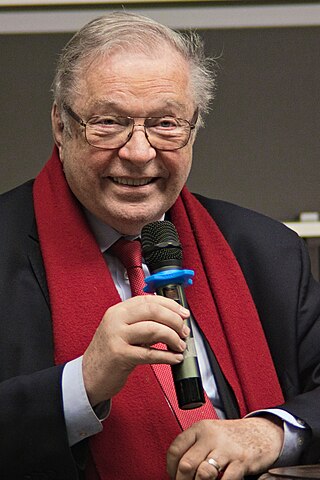
Krzysztof Pius Zanussi is a Polish film and theatre director, producer and screenwriter. He is a professor of European film at the European Graduate School in Saas-Fee, Switzerland where he conducts a summer workshop. He is also a professor at the Krzysztof Kieślowski Film School of the University of Silesia in Katowice.

Harvey Williams Cushing was an American neurosurgeon, pathologist, writer, and draftsman. A pioneer of brain surgery, he was the first exclusive neurosurgeon and the first person to describe Cushing's disease. He wrote a biography of physician William Osler in three volumes.

The University of Turin is a public research university in the city of Turin, in the Piedmont region of Italy. It is one of the oldest universities in Europe and continues to play an important role in research and training. It is steadily ranked among the top 5 Italian universities and it is ranked third for research activities in Italy, according to the latest data by ANVUR.
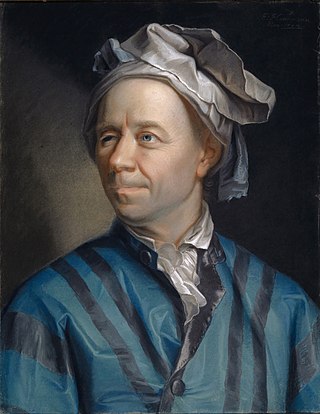
A mental calculator or human calculator is a person with a prodigious ability in some area of mental calculation.

Meningioma, also known as meningeal tumor, is typically a slow-growing tumor that forms from the meninges, the membranous layers surrounding the brain and spinal cord. Symptoms depend on the location and occur as a result of the tumor pressing on nearby tissue. Many cases never produce symptoms. Occasionally seizures, dementia, trouble talking, vision problems, one sided weakness, or loss of bladder control may occur.

Child of God (1973) is the third novel by American author Cormac McCarthy. It depicts the life of a violent outcast and serial killer in 1960s Appalachian Tennessee.
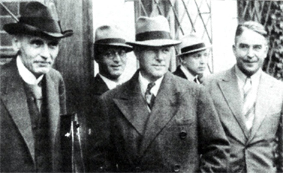
Otfrid Foerster was a German neurologist and neurosurgeon, who made innovative contributions to neurology and neurosurgery, such as rhizotomy for the treatment of spasticity, anterolateral cordotomy for pain, the hyperventilation test for epilepsy, Foerster's syndrome, the first electrocorticogram of a brain tumor, and the first surgeries for epilepsy. He is also known as the first to describe the dermatomes, and he helped map the motor cortex of the cerebrum.
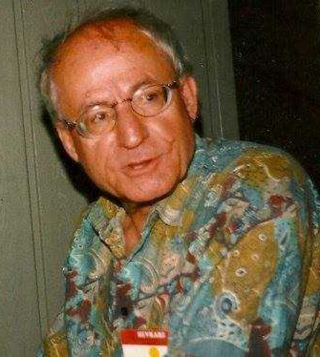
Jamal Nebez was a Kurdish linguist, mathematician, politician, author, translator and writer. He studied Islamic law, philosophy, theology, physics and mathematics at the University of Baghdad in the 1950s. In 1956, he prepared a stenciled script on algebra and in 1960, succeeded in publishing the first physics book in Kurdish, including a rich glossary of Kurdish terms pertaining to physics and mathematics. He translated several literary works, including works of Nikolai Gogol and William Shakespeare into Kurdish. He also wrote and published several books on a variety of topics. Most of the books are mainly about topics related to Kurds.

An academic genealogy organizes a family tree of scientists and scholars according to mentoring relationships, often in the form of dissertation supervision relationships, and not according to genetic relationships as in conventional genealogy. Since the term academic genealogy has now developed this specific meaning, its additional use to describe a more academic approach to conventional genealogy would be ambiguous, so the description scholarly genealogy is now generally used in the latter context.

The Dead Zone is a science fiction thriller novel by Stephen King published in 1979. The story follows Johnny Smith, who awakens from a coma of nearly five years and, apparently as a result of brain damage, now experiences clairvoyant and precognitive visions triggered by touch. When some information is blocked from his perception, Johnny refers to that information as being trapped in the part of his brain that is permanently damaged, "the dead zone." The novel also follows a serial killer in Castle Rock, and the life of rising politician Greg Stillson, both of whom are evils Johnny must eventually face.

The Constant Factor is a 1980 Polish film directed by Krzysztof Zanussi. It tells the story of a young man struggling to face the death of his mother and harbouring a desire to climb the Himalayas as his father had done.

Sam's Letters to Jennifer is a novel written by James Patterson, published in 2004. It was the tenth bestselling fiction hardcover book of 2004 in the United States.

Greg Evans is a fictional character from the ABC soap opera One Life to Live. The role was originated onscreen by actor Terrell Tilford June 23, 2009, who appeared through November 17, 2010.

The Hippocratic Crush, also known by its Chinese language title On Call 36 Hours is a 2012 Hong Kong television medical drama series produced by Poon Ka-tak and TVB. The drama follows the lives of young housemen, residents, and their mentors working in Mercy Hospital (慈愛醫院), a fictional hospital set in Hong Kong.
Fergus William Campbell was a Scottish vision scientist who conducted foundational research into the optics of the human eye, into the electrical activity of the brains of people experiencing various phenomena of vision, and into the sorts of images which, when shown to people, might reveal the processes of their visual systems. Campbell's research changed the course of vision science.
Charles Byron Wilson was an American neurosurgeon.
References
- ↑ "ILUMINACJA". archive.pardo.ch. Retrieved 16 January 2014.